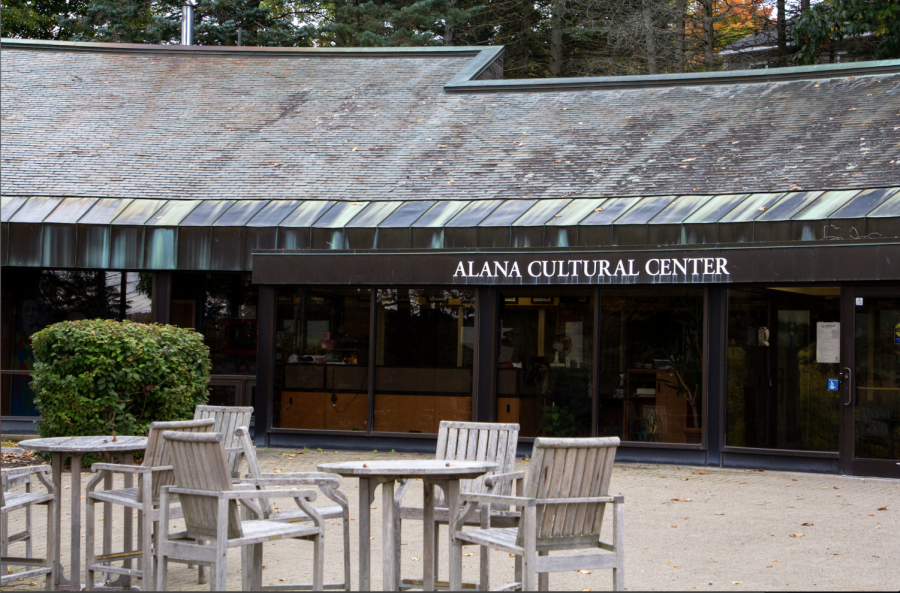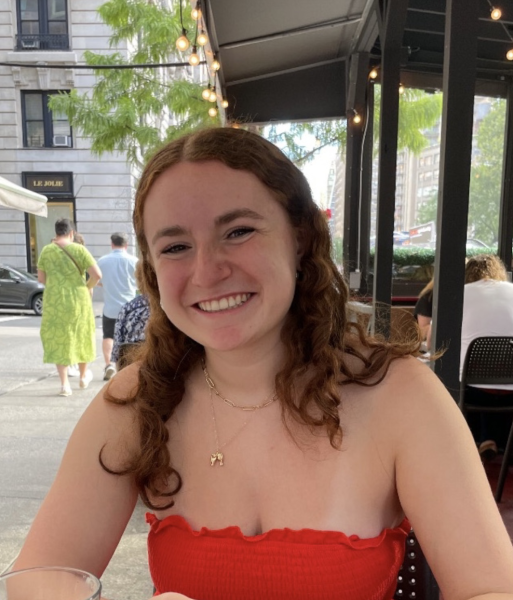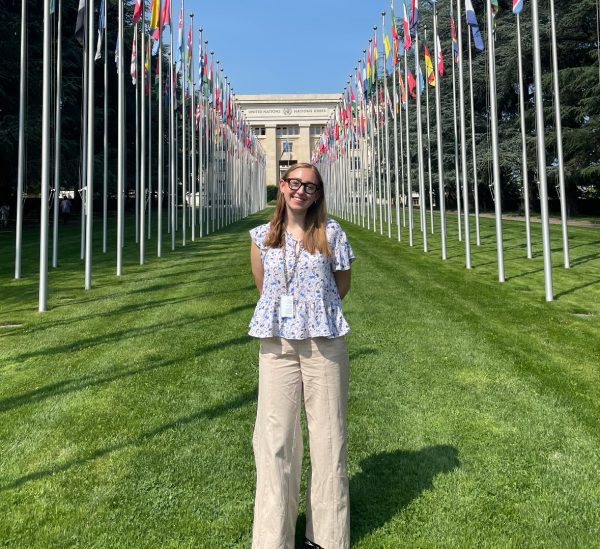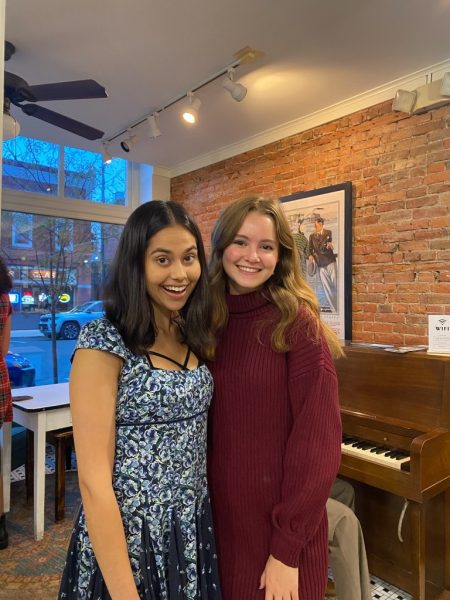The ALANA Cultural Center
Nestled in the tree line on top of the hill is a beautiful curved stone building. Inside you can find a comfortable room with big bean bag chairs, a dining room and a fully furnished kitchen, which is available for reserve by students in normal conditions. The Africana, Latin, Asian and Native American Cultural Center (ALANA) is a great recreational space, but its programs and goals extend far beyond its cozy rooms. ALANA ensures a safe space for minority students on campus and offers a diverse selection of workshops and informational lectures for anyone interested in cultural diversity on campus.
Senior Jaritza Nunez, a Social Justice Peer Educator with the ALANA Cultural Center, is passionate about the ideals and goals of the organization. Nunez works alongside seniors Haley Taylor and Marie Nevels in her position to develop and present workshops centered around social justice and activism. Titles of past workshops include Social Justice 101, The Privilege of Self Care and The Power of Storytelling.
“ALANA is my home away from home. I consider everyone here family as they have always been so welcoming, loving and supporting,” Nunez said about her connection to ALANA.
Nunez was adamant that the people within ALANA are what makes the space a wonderful part of the Colgate community.
“I am extremely proud of all the love ALANA puts into the community. ALANA has been there for students, staff and faculty no matter how hard things get on campus or in society at large. I also have to say that I am also proud of the work everyone has done to keep these events going,” she said.
ALANA’s goal is to make a more inclusive community at Colgate, while addressing current and ongoing issues. Not only is ALANA focused on giving the students of color a safe space, but “[ALANA is] also a space of critical thinking and engagement, where we invite people to reexamine their positions of privilege and use it for social justice work,” Nunez said. ALANA offers a multitude of programming, events and workshops addressing different issues using different formats.
Nunez explained that ALANA stands by its five tenets: community building, commitment to social justice, celebrating the unique cultures and histories of our students, staff and faculty, helping students feel empowered to take ownership of their lives and peer education and engagement.
“I think people should be involved with ALANA to learn about other cultures respectfully and engage in conversations surrounding inclusivity and the intersections of race and other social identities,” Nunez said, “and everyone is welcome!”
One of the biggest events held by the center is ALANApalooza. This is an event in which people can sample different ethnic foods and have open conversations about diversity. ALANApalooza is a crowd favorite and the personal favorite of Nizhoni Saenz, who is closely acquainted with the ALANA community.
“ALANA is one of the safe spaces on campus for students of color who often feel marginalized at this predominantly white university… having access to spaces like ALANA is really important for students of color, whether it’s for study spaces, club meetings or dinners,” Seanz explained. Saenz is the social media chair for the Sisters of the Round Table (SORT), an organization for women of color at Colgate, as well as the co-president for Queer Trans People of Color (QTPOC).
Saenz expressed the importance of having access to a safe space for POC especially given the toll COVID-19 has taken on the community. Many of the resources ALANA normally provides are not available due to social distancing restrictions. “Lack of access to these physical spaces can lead to higher feelings of isolation on an already predominantly white campus, which is why I know a lot of my friends didn’t come back to Colgate,” Seanz explained. ALANA provides comfort and community for many Colgate students, making it especially unfortunate that those resources have been taken away in the hardest times.
Eliza Leal, a junior at Colgate who frequents ALANA and its events, hopes that ALANA will help other students like her realize the beauty of their culture and learn to embrace their differences.
“ALANA… promotes freedom of thought and expression and encourages students to embrace their cultural roots. Alana helped me realize that I should honor my Latinidad and always feel proud doing so,” she ssaid. “ALANA is a reminder of how important it is to acknowledge diversity and honor all races and ethnicities in the Colgate community… It has become a space to share experiences of injustices within the community without fear of retaliation. This space on campus has become a prime resource for antiracism initiatives that aim to strengthen and unify the Colgate community.”
Leal believes that ALANA is also a source for activism inspiration.
“By becoming more involved with ALANA, students will be able to gain a better understanding of their immediate community that you cannot find in the classroom,” she said.
ALANA celebrates cultural diversity on campus, and it provides a community for students who may not find that elsewhere at Colgate, something many students take for granted.















